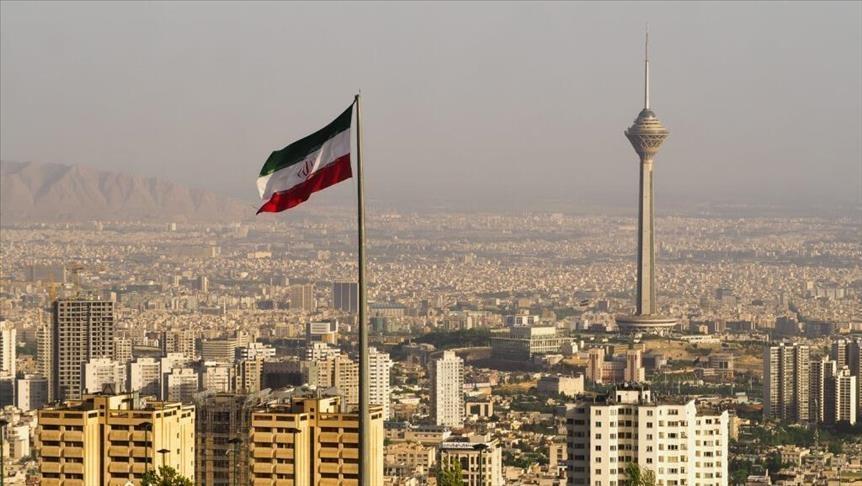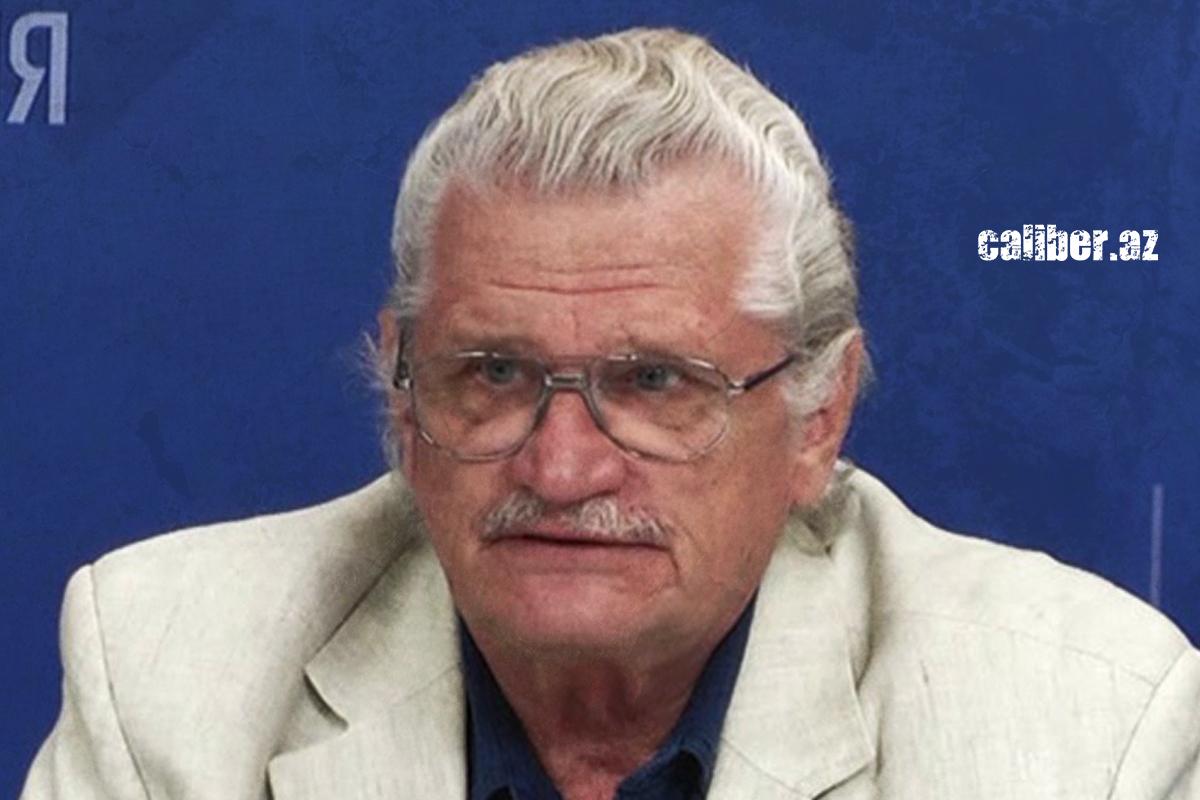Washington, Tehran and JCPOA: Is there an aim to flood world market with Iranian oil? Professor Vladimir Sazhin in touch with Caliber.Az
Recently, the eighth round of negotiations on the Iranian nuclear deal ended in Vienna, at which the United States and Iran actually came closer to working out a compromise document. But, apparently, they are not in a hurry to sign it yet. At the same time, recent US-Iranian consultations have shown that the current White House administration, unlike the previous one, is generally interested in restoring the nuclear deal and returning the United States to the Joint Comprehensive Plan of Action (JCPOA). However, the further advancement of the negotiating agenda in this direction is complicated by the demands that the Iranian side is putting forward today.
As you know, the JCPOA was concluded in 2015 between the US and Iran on the one hand, and the Russian Federation, the PRC, and the three European parties (Britain, France, Germany) on the other. In 2018, then-President Donald Trump unilaterally withdrew the US from the agreement. Since then, Iran has been increasing its uranium enrichment levels every year, much to the dismay of the US and the West. However, while Iran used to count on the removal of US economic sanctions for certain concessions on its nuclear program, today it demands specific guarantees. This includes a commitment that, if the Republicans win the majority in the upcoming congressional elections, they will not be able to nullify the agreements reached under Biden, that is, to return the sanctions. Meanwhile, the likelihood that Iran will actually receive such guarantees from the White House is very doubtful.
This is not the only demand from the Iranian side. Tehran wants the United States to remove the Islamic Revolutionary Guard Corps (IRGC) from the list of terrorist organizations, and in parallel, it is counting on guarantees on the nuclear deal from the IAEA. According to Reuters, citing Iranian sources, the US and Iran have already agreed in part on the IRGC issue. It is reported that the removal of the IRGC from the blacklist may take place after the nuclear deal is restored, although how long it will take before it is finally reanimated is a big question. By the way, in March of this year, negotiations between the United States and Iran blunted precisely because of the US refusal to remove the IRGC from the list of terrorist organizations. However, judging by the insistence of the Iranian side, this issue is of fundamental importance for the current Iranian leadership, which brings additional tension to the already complicated Iranian-American relations.

Amid these tensions, the US State Department urged Iran to reject additional conditions for returning to the nuclear deal, arguing that they go beyond the JCPOA. In particular, State Department spokesman Vedant Patel said that the US would only agree to accords that meet America's national security interests. However, there are other messages from Washington. For instance, some time ago, US Secretary of State Anthony Blinken said outright at a House hearing that maximum pressure on Iran has not helped stop its nuclear program and that the United States will continue to oppose Tehran's destabilizing behavior regardless of the agreement on the JCPOA. And recently, speaking at the Nuclear Non-Proliferation Treaty Conference, Blinken again publicly acknowledged that reinstating the JCPOA would be the best development, not just for the United States and Iran, but for the world.
Recent statements by former US Presidential National Security Adviser John Bolton, however, run counter to the position of the current administration. Speaking on CNN, the American politician said that Biden is making a big mistake in begging Iran to return to the JCPOA. He said a majority of his fellow congressmen oppose Iran returning to the deal. Bolton has previously advocated for withdrawal from the nuclear deal and supported Trump's decision. He has even pushed for regime change in Iran. Ahead of his 2018 South Caucasus tour, Bolton, who has been dubbed a "hawk" on the Iranian issue, said in an interview that he was going to the Caucasus to see the extremely important geographic role the three countries play in relations with Iran and Russia.
The fact that Russia closely monitoring the processes surrounding the Iranian nuclear deal is confirmed by a recent statement by the Russian Foreign Ministry accusing Washington of torpedoing the nuclear deal. Moscow says the United States is trying to trade off additional terms in its negotiations with Iran.
However, the partial change in US rhetoric regarding Iran's nuclear program and Russia's accusations against the Americans have a number of reasons directly related to the interests of Moscow and Washington.

Developing this idea in a conversation with Caliber.Az, Vladimir Sazhin, a senior researcher at the Institute of Oriental Studies of the Russian Academy of Sciences, Ph.D. in history, confirmed that public opinion in the United States is inclined towards the return of America to the JCPOA. That's why he assumes that Joe Biden wants to use the chance and do everything possible to breathe a new life into the nuclear deal so that the Democrats could present it as a big foreign policy victory that would raise Biden's shaky rating and strengthen the Democratic Party on the eve of the congressional elections. According to the expert, this is the internal reason for the White House's current position.
"The external one is the willingness to turn off the valve for Iranian oil to the world market. First of all, to Europe, to compensate for the shortage of Russian oil. This could significantly lower world prices for hydrocarbons, including gasoline in the US, which is very important for Democrats on the eve of elections. That is why, at the end of the August talks in Vienna, the US decided to "quickly make a deal" to revive the JCPOA.
At the same time, in Iran, the restoration of the JCPOA is supported both by the majority of the population, apparently tired of harsh sanctions, the economic crisis, and falling living standards and by Supreme Leader Ayatollah Khamenei and President Raisi. The traditional pragmatism of the Islamic Republic's foreign policy dictates that the country's leadership must return to the JCPOA. So not only the US but also Iran faces a momentous choice concerning the future of this treaty.
Moscow's position generally coincides with that of the parties involved in the dialogue with Iran. However, there are minor nuances here. The fact is that the European Union views the August talks as the completion of the process in the form of a final document. Unlike the EU, Moscow allows for the possibility of correcting the draft agreement presented by Brussels. So Russia will probably support Iran's decision if Tehran wants to amend the draft agreement again and insist on it. This Russian approach does not freeze the possibility of continuing the dialogue or giving up on the JCPOA in case Tehran refuses to accept the European version of the agreement. Obviously, the restored JCPOA should be fully consistent with the 2015 nuclear deal," Sazhin said.
R.S. Summarizing the above, we can conclude that Iran will continue to bargain for more favourable terms from the current White House administration right up to the Congressional elections not to be short-changed in case the Republicans win. This, however, is very likely, given the low rating of Biden and his team.








